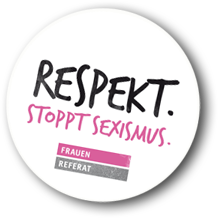Children have rights. Since 1989, 54 articles have been defined in the “Convention of the Rights of the Child” by the United Nations; an agreement signed by the majority of the governments in the world. That means: Almost all countries have committed that, in their countries, the Children’s Rights are valid for all children under 18 years of age.
The Children’s Rights are at the same time Girls’ Rights. This should be needless to say. But unfortunately, girls are often treated worse than boys. The Children’s Rights forbid this type of differentiation. The first Children’s Right states: “Children have the right to equal treatment and protection against discrimination of any kind, irrespective of the child's religion, origin and gender”. This means that nobody is allowed to treat a child badly or say they are less worthy than another. It does not matter which religion the child is part of, such as Catholic, Jewish or Muslim; whether the child or their parents were born in another country; or whether the child is a boy or a girl. All children must be treated equally.
The Convention of the Rights of the Child consists of 54 articles. The 10 most important are:
- Children have the right to equal treatment and protection against discrimination of any kind, irrespective of the child's religion, origin and gender.
- Children have the right to have a name and a nationality.
- Children have the right to healthcare.
- Children have the right of education and training. (Nobody can stop them to go to school, to learn and to get an education.)
- Children have the right to have free time, play time and recreation. (It is, for example, forbidden to make them do so much household work, that they do not have time to play and to enjoy themselves.)
- Children have the right to inform themselves, to communicate with each other, to be heard and to gather together. (That means, children can have their own opinions and they have the right to express them too, and adults have to listen to what they say.)
- Children have the right to a private sphere and to a non-violent upbringing. (Adults have to ensure that children have their own space within the house, in which they can keep their things and where they can retreat. Nobody can hit them or hurt them, even their parents cannot use this as punishment.)
- Children have the right to immediate help in catastrophes and emergencies, as well as the protection against cruelty, negligence, exploitation and persecution.
- Children have the right to a family, for parental provision and for a safe home.
- Children with disabilities have the right to be taken care of. (Adults have the responsibility to take care of disabled children.)
